With the rise in popularity of facial recognition technology, Pimeyes has emerged as a leading reverse image search engine. However, as concerns over privacy and data usage continue to grow, many are looking for free alternatives that offer similar functionality.
In this post, we will explore 12+ top Pimeyes alternatives that are free to use. From Google Lens to Betaface, these options provide powerful image search capabilities while prioritizing user privacy.
Whether you're a casual user or industry professional, this guide covers key players that match or even exceed Pimeyes in accuracy, speed, and database size. We'll compare features, interfaces, and usage policies so you can find the right fit for your needs.
Read on to discover the best free Pimeyes alternatives for ethical, effective image searching and tracking in 2024.
What is Pimeyes?
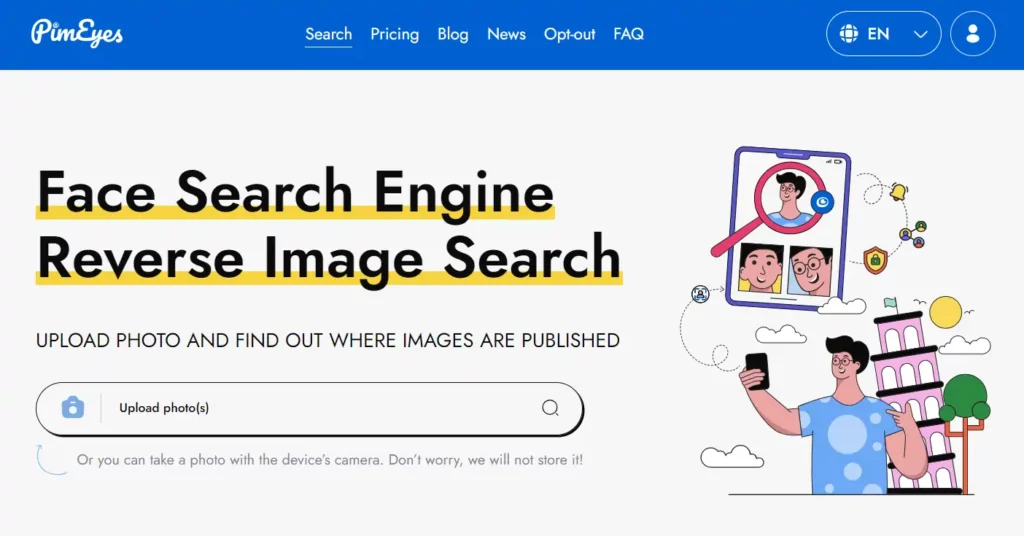
Pimeyes is an advanced face recognition search engine and a reverse image search tool. It was launched in 2017 by Polish software engineers Lucasz Kowalczyk and Denis Tatina. The website allows users to identify all images on the internet of a person given a sample image. Users can upload a photo of a face, agree to the terms of service, and then receive a grid of photos of faces deemed similar, with links to where they appear on the internet. The website is currently owned by EMEARobotics, a corporation based in Dubai, with its CEO being Giorgi Gobronidze.
Need for Pimeyes or Pimeyes Alternatives?
The need for Pimeyes or its alternatives arises from the increasing demand for effective image search and recognition tools. These tools are used for various purposes, including:
- Copyright Protection: Photographers, artists, and content creators can use these tools to find instances where their work has been used without permission, helping them protect their intellectual property rights.
- Identity Verification: These tools can be used to verify the identity of individuals in images, which can be useful in various fields such as security, law enforcement, and social media.
- Brand Monitoring: Companies can use these tools to monitor how their brand is being represented online. They can find images of their products or logos and see where and how they are being used.
- Content Moderation: These tools can help social media platforms and websites identify inappropriate or offensive images and remove them.
- Personal Use: Individuals can use these tools to find higher resolution versions of images, find the original source of an image, or find out more information about an image.
List of Best Pimeyes Free Alternatives in 2024: In a Nutshell
| Tools | Features | Pricing |
|---|---|---|
| Face++ | Face detection, verification, body detection, components identification, Web API, Mobile SDK | Freemium |
| Kairos | Face detection, identification, verification, attributes analysis, coordinates, anti-spoofing, diversity recognition | Freemium |
| Pixsy | Image tracking, monitoring, takedowns, reporting, alerts | Freemium |
| Reversee | Reverse image search, image editor, smart navigation, paste image, browser support. | Freemium |
| Betaface | Detection, recognition, analysis, tracking, custom development, hosted services. | Freemium |
| SauceNAO | Multiple search engines, drag and drop, search history, image info, browser extensions, and APIs. | Free |
| TinEye | Reverse image search, higher resolution search, multicolor engine, alerts, API. | Freemium |
| Bing Visual Search | Similar images, product search, context ID, type recognition, OCR, and OCR, recommendations. | Freemium |
| Yandex Images | Filters, similar image search, SafeSearch, reverse image search, classification,classification and text recognition. | Freemium |
| Google Lens | Object ID, barcode/QR scanning, text recognition, landmarks, shopping. | Free |
| Ximiliar | Visual similarity search, image recognition, annotating, model building, data ownership, support. | Freemium |
| Berify | Reverse image search, tracking, a large database, detailed reports, and automated alerts. | Freemium |
1. Face ++
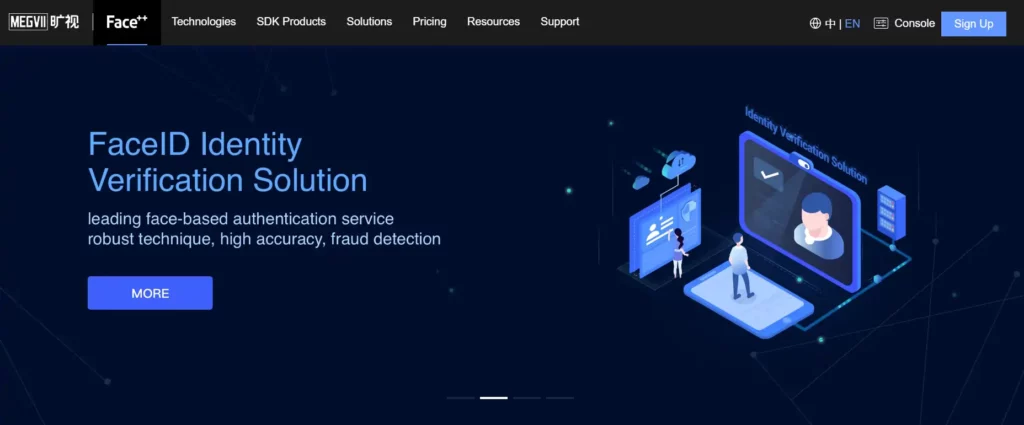
Face++ is a facial recognition platform that detects, analyzes, and compares faces in images and videos. Offering accurate face detection and facial data analysis, Face++ enables developers to build facial recognition capabilities into their applications.
Unlike Pimeyes which focuses on reverse image search, Face++ provides a developer API for implementing facial recognition technology across various use cases. Its solutions can match faces with speed and precision for security, marketing, and more.
The platform is capable of detecting and mapping 106 different data points on an individual's face, providing high rates of accuracy in identity confirmation. Its open platform interface allows application developers to access and utilize its capabilities, contributing to its organic growth and efficiency.
Pricing plans for Face++:
Face++ offers a variety of pricing plans to cater to different user needs. They provide a free plan where users can try out all Face++ services at no cost. For users with more extensive needs, they offer a Pay As You Go plan where users can top up their accounts and pay for what they consume, starting at $5.
2. Kairos
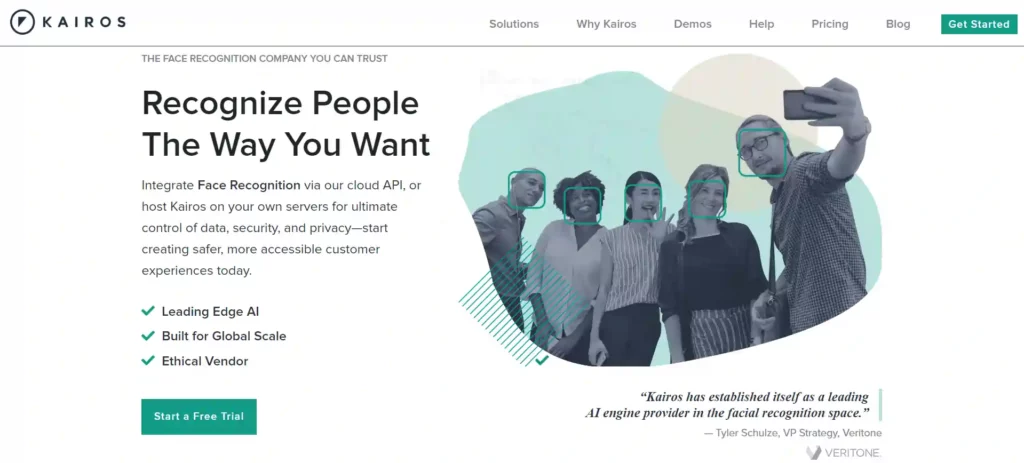
Kairos is an innovative AI company specializing in face recognition technology. It was founded in 2012 and is based in Miami. With a focus on ethical identity solutions, Kairos serves a global clientele, offering both cloud API and on-premises options for businesses.
The company is recognized for its commitment to privacy and adherence to facial recognition regulations, ensuring that clients can create safer and more accessible customer experiences. Kairos' technology is designed to recognize faces in various contexts, is powered by advanced computer vision and deep learning, and is backed by investors like Kapor Capital and 500 Startups.
Pricing Plans of Kairos:
Kairos provides several pricing plans according to different needs. The Student Cloud plan is $19/month with a $0.02 per transaction fee. The Developer Cloud plan is $99/month with a $0.02 per transaction fee. The Business Cloud plan is $249/month with a $0.002 per transaction fee.
3. Pixsy
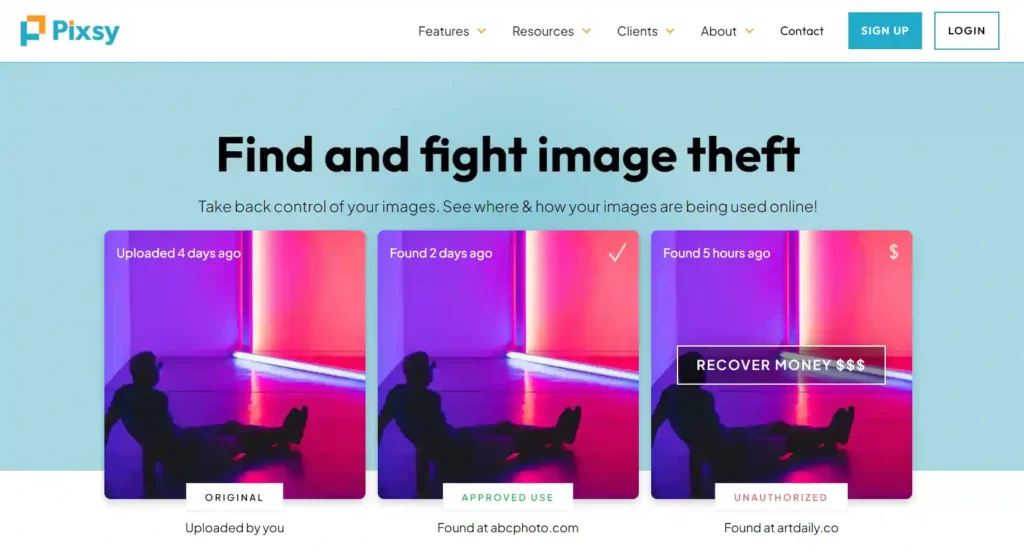
Pixsy is a pioneering legal-tech service that empowers creatives around the world to control how, where, and when their work is used. Founded in 2014, Pixsy provides a suite of tools and services to find, manage, and resolve cases of unauthorized use of images. The company's mission is to make complicated copyright and intellectual property law easy and accessible to everyone, ensuring easy, low-risk access to legal support and compensation.
With advanced image-tracking solutions and reverse image search technologies, Pixsy is a trusted partner for photographers, designers, illustrators, media companies, and brands.
Pricing Plans of Pixsy:
Pixsy offers several pricing plans to suit different needs. The free plan allows the monitoring of 500 images with limited import sources. The personal plan costs $19/month and monitors 2,000 images.
4. Reversee
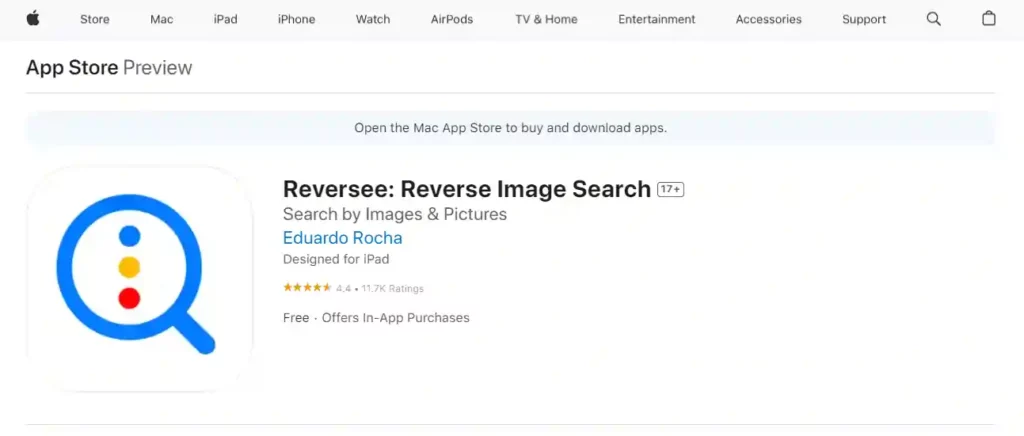
Reversee is a reverse image search app developed by Eduardo Rocha and first released in May 2014. It acts as a bridge between device images and reverse image search engines like Google Images, allowing users to search for webpages containing a specific picture, find higher-resolution versions of images, or discover someone's social media profile.
Reverse is an easy-to-use reverse image search app for iOS that connects user images to search engines to uncover more information and similar images online.
Pricing Plans of Reversee:
Reversee presents users with two distinct plans: a free option and the Pro Plan, priced at $3.99 per month. Additionally, it offers a search engine feature across multiple engines for $1.99 per month, enhancing search capabilities for subscribed users.
5. Betaface
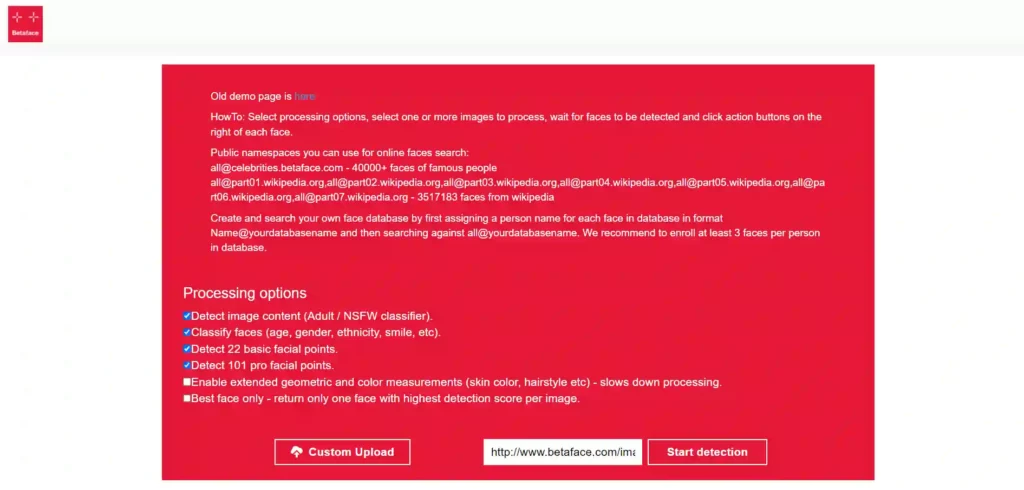
Betaface is a facial recognition software provider offering robust face detection, analysis, and recognition capabilities to developers. Its SDKs and APIs power facial recognition in applications across industries like media, advertising, and security. Unlike Pimeyes which focuses specifically on reverse image search, Betaface provides broader facial recognition solutions for detecting, verifying, and tracking faces in images and videos.
While Pimeyes searches the open web to match faces, Betaface enables building customized recognition databases and face search functionality into new apps. With precision face analysis and comparison, Betaface facilitates various facial recognition use cases beyond Pimeyes's focus on identity search and discovery online. Its strong algorithms and customization options make Betaface a versatile option for developers building facial recognition into diverse applications.
Pricing Pans of Betaface:
Betaface offers several pricing plans according to user needs. The free plan allows for 50 images per day at no cost without registration. The Freemium plan, at 0 € per month, allows for 500 images per day, registration is required to access this plan.
6. SauceNao
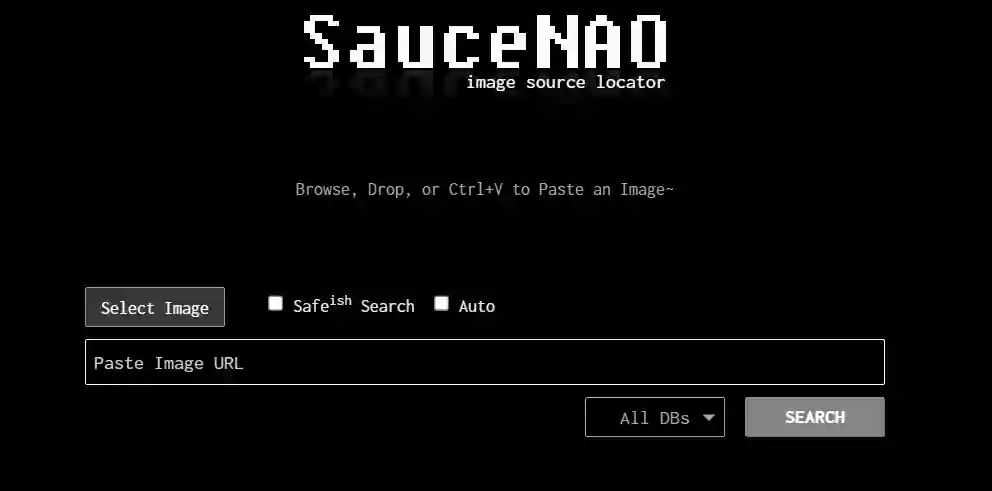
SauceNAO is a versatile reverse image search engine used to locate the original source of images online. With robust image recognition capabilities, it can match input images to a vast database spanning anime, manga, video games, and more. Unlike Pimeyes which focuses specifically on facial recognition and identity search, SauceNAO offers broader functionality for tracking down any type of image across the web.
While Pimeyes analyzes faces, SauceNAO analyzes visual details in images to trace them back to their initial online posting. With customizable safe search filters and handy browser extensions, SauceNAO provides flexible tools for comprehensive reverse image lookup beyond Pimeyes's specialization in facial recognition and personal identity discovery. Though more generalized, SauceNAO's powerful image matching paves the way for diverse use cases from verifying product authenticity to tracing meme origins across the internet.
Pricing Plans of SauceNAO:
SauceNAO is a free reverse image search engine that does not charge any fees for using its service.
7. TineEye

TinEye is a pioneering reverse image search engine developed by Idee Inc., a Toronto-based company. Launched in 2008, TinEye allows users to search the web for other instances of a specific image or find higher-resolution versions. It uses image identification technology rather than keywords, metadata, or watermarks.
TinEye is particularly useful for photographers, copyright holders, and legal professionals who want to see where an image has appeared online or verify the copyright of an image.
Pricing plans for TinyEye:
TinEye provides various pricing tiers. The free version allows limited searches daily, while paid options include Starter ($200/mo), Basic ($500/mo), and Corporate (starting at $1500/mo) plans for increased usage.
8. Bing Visual Search

Bing Visual Search was launched by Microsoft on September 14, 2009. It is an advanced search feature that allows users to search the web using images instead of text. By uploading an image or using one found online, users can find similar images, shop for products, explore landmarks, identify dog breeds, and more.
Bing Visual Search uses artificial intelligence to recognize objects and text within images to provide relevant search results.
Pricing Plans of Bing Visual Search:
Bing Visual Search offers free access to features like Safe Search, Crop Hints, and Image Properties, allowing the first 1000 transactions per month at no cost.
9. Yandex Images
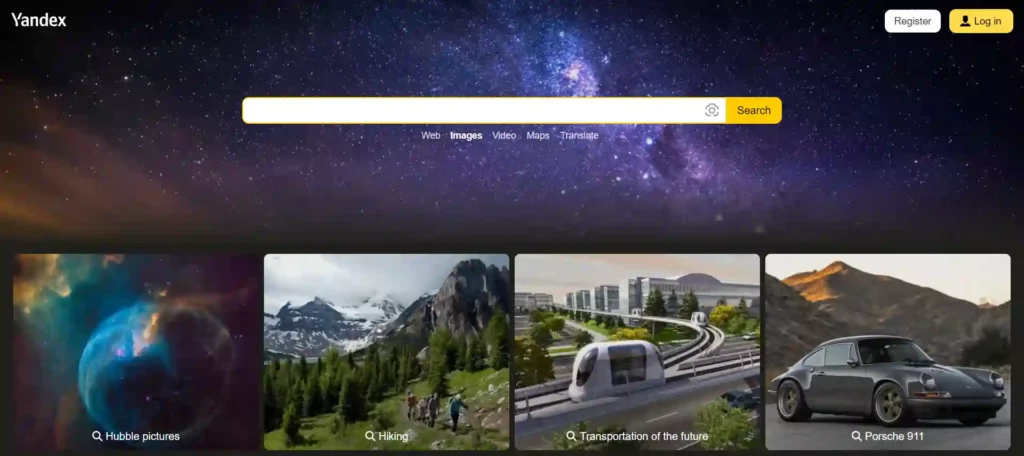
Yandex Images, a feature of Yandex, Russia's largest technology company, was launched on September 23, 1997. This image search engine allows users to explore the vast visual content available online. By uploading an image or using one found on the web, users can find similar images, identify objects, and gain more information about the image content.
Yandex Images uses advanced algorithms to recognize objects and text within images, providing relevant search results. It also offers features like advanced filters, SafeSearch, reverse image search, image classification, and text recognition.
Pricing Plans of Yandex Images:
Yandex Images offers free access to features like enhanced image recognition, facial recognition, various sizes and dimensions, and text recognition and translation.
10. Google Lens
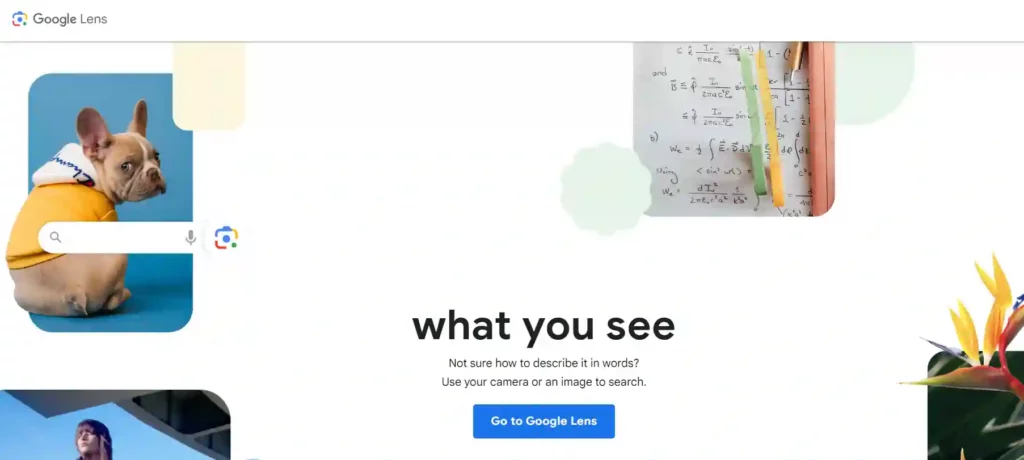
Google Lens was officially launched by Google on October 4, 2017. It is an advanced image recognition tool that uses artificial intelligence to identify objects and provide relevant information in real time. Users can point their device's camera at an object, such as a plant, animal, landmark, or product, and Google Lens will recognize it and offer actions like scanning, translation, and shopping.
It can also scan barcodes and QR codes, adding a layer of interactivity to the physical world through the camera lens. Since its launch, Google Lens has expanded to support a wide range of Android and iOS devices.
Pricing Plans of Google Lens:
Google Lens is completely free to use.
11. Ximilar
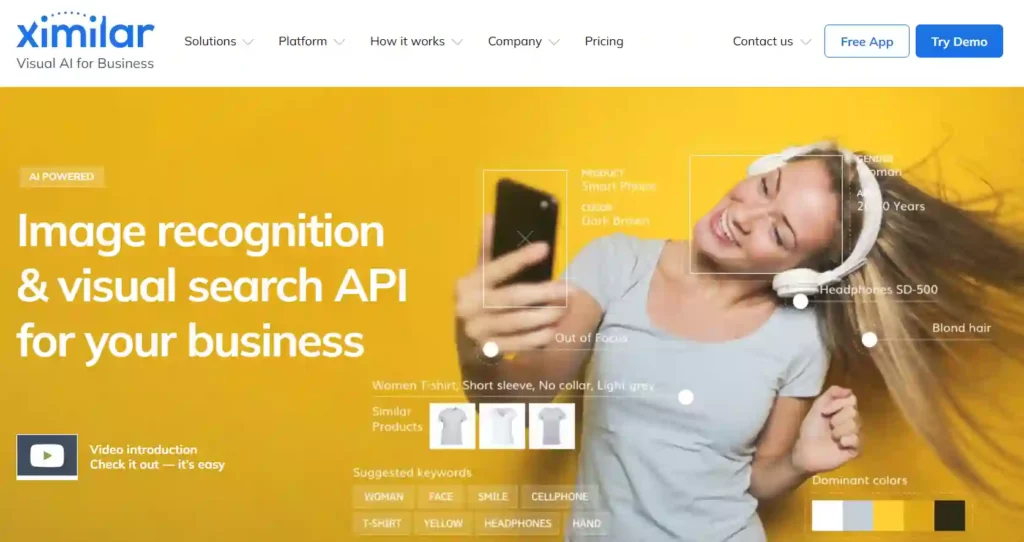
Ximilar is an image recognition and visual search platform that enables businesses to build customized visual search and image analysis solutions. Offering AI-powered capabilities like object detection, image tagging, visual similarity search, and more, Ximilar facilitates creating tailored image recognition models through its flexible framework.
Unlike Pimeyes which focuses specifically on facial recognition for identity search, Ximilar provides a broader range of computer vision functionalities that companies can leverage to enhance applications and systems across industries.
From e-commerce visual search to analyzing medical images, Ximilar's developer-focused platform targets a wider variety of use cases beyond Pimeyes's specialization in discovering personal photos online. With robust image analytics and customization options, Ximilar serves as a versatile computer vision toolkit for enterprises.
Pricing Plans of Ximiliar:
Ximilar offers a variety of pricing plans to accommodate different business needs. They provide a free plan that includes 3,000 API credits per month. For businesses requiring more credits, there are paid plans starting at €59 per month for the Business plan, which includes 100,000 monthly API credits.
12. Berify
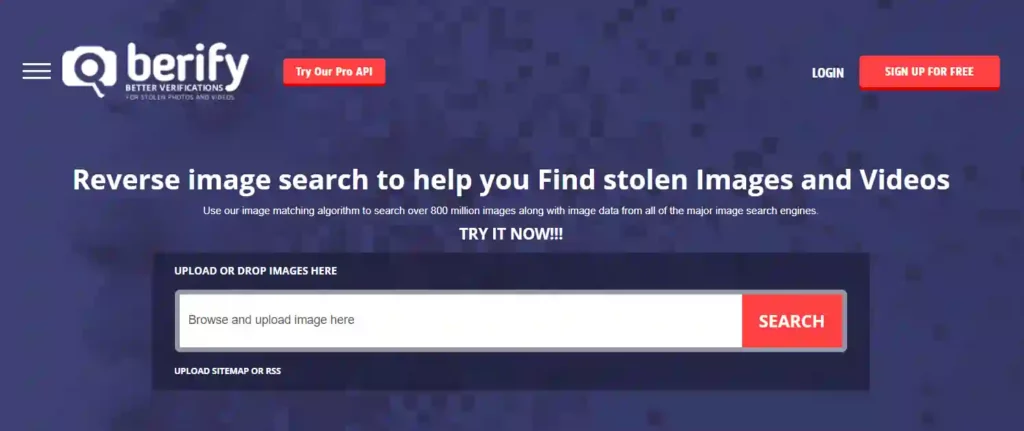
Berify is a new facial recognition search engine that allows users to upload a photo of a person's face to search the internet for other images of that person. It is similar to Pimeyes, another facial recognition search engine, but Berify claims to have more advanced technology and a larger database of images to search from.
Both services aim to help users find and control the use of their images online, but have faced criticism over potential privacy violations. While Pimeyes is more established, Berify markets itself as the next generation of facial recognition search. Key differences are Berify's purported faster and more accurate face matching capabilities. However, more time is needed to evaluate if Berify can deliver on its promises over Pimeyes.
Pricing Plans of Berify:
Berify offers several pricing plans to cater to different user needs. The free plan allows users to perform 5 searches and track 1 image. Paid plans start at $29.99 per month for the Personal plan, which includes 150 searches and tracking for 15 images. The Professional plan costs $99.99 per month and includes 600 searches and tracking for 60 images.
Difference Between Face Detection and Face Recognition
Face Detection and Face Recognition are two distinct processes within the field of computer vision. Here are the key differences between them:
Face Detection
Face Recognition
Privacy Concerns with Facial Recognition Technology
Facial recognition technology poses serious threats to individual privacy and civil liberties. As this AI-powered surveillance tool becomes more pervasive in both public and private sectors, key issues around consent, transparency, and accountability arise.
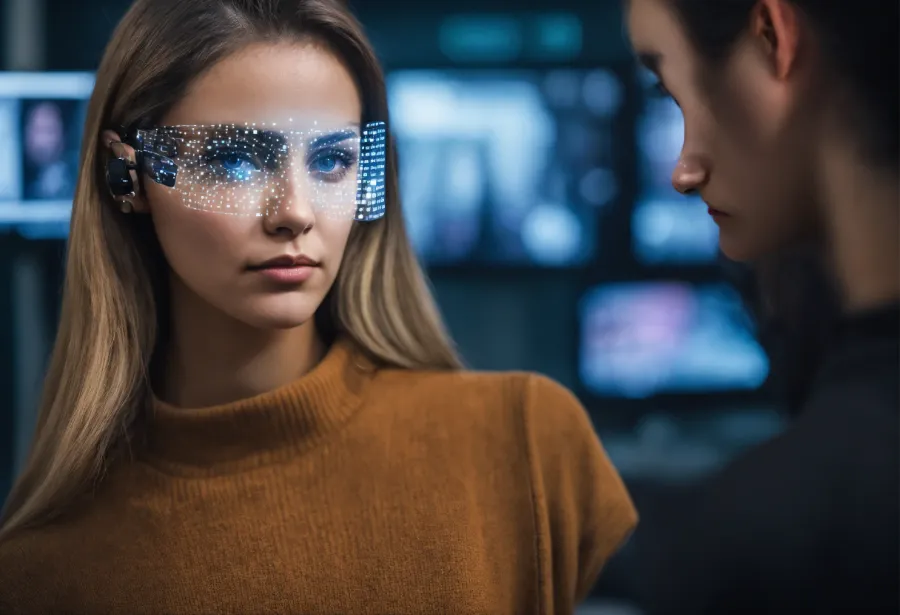
Most facial recognition systems today operate without the knowledge or permission of people being identified, raising concerns over mass warrantless searches. There is often no visibility into which databases these systems access, how the data is used, or what security measures are in place. Breaches could expose highly sensitive biometric data, enabling identity theft, stalking, and other predatory behavior that can be difficult to prevent given the permanence of facial features.
Additionally, facial analysis AI has demonstrated harmful biases along gender and racial lines, leading to wrongful arrests and false accusations. Without stringent safeguards and oversight, facial recognition threatens to exacerbate existing injustices in law enforcement.
Overall the combination of ubiquitous data collection, opaque practices, inaccuracy, security flaws, and bias in facial recognition technology endangers privacy rights and civil liberties. Carefully crafted legal protections and ethical guidelines for this technology are needed to prevent misuse and abuse. Strong consent, transparency, accountability, and non-discrimination should be core principles as this field evolves.
FAQs related to Free PimEyes Alternatives
Is PimEyes legal?
While PimEyes doesn't technically break any privacy laws as it only shows images from the open web, it has been accused by many security agencies of enabling stalking. PimEyes imposes rules that specify that users can only search for themselves or individuals who have consented to a search. However, there are no significant barriers preventing individuals from conducting searches on others without their permission.
How accurate are PimEyes and its Alternatives?
PimEyes and its Alternatives are highly accurate for the face recognition of known celebrities and media journalists. Its accuracy can also depend on the quality of the reference image and its features.
How reliable are Pimeyes and its Alternatives?
The reliability of Pimeyes and its alternatives varies, but some offer good accuracy in image searches. For instance, TinEye uses 63.8 billion images for its reverse lookup purpose to offer ultimate accuracy.
What are the privacy concerns associated with PimEyes?
PimEyes has raised controversy due to its potential misuse as a surveillance tool. There are concerns that it could be used for stalking, identity theft, and other crimes. Despite PimEyes' rules stipulating that people only search for themselves or people who consent to a search, there is nothing stopping anyone from running a search of anyone else at any time.
How do these alternatives compare to Pimeyes in terms of facial recognition capabilities?
While Pimeyes is known for its facial recognition capabilities, alternatives like Berify and Yandex also offer robust facial recognition. However, the accuracy and speed may vary between these platforms.
Are there any Alternatives that offer better privacy features than Pimeyes?
While all platforms have privacy measures in place, some users may find the privacy features of Google Images and Bing Visual Search more robust due to their anonymization of search data.
Can I use PimEyes alternatives for professional investigations?
Recommended Readings:
Final Verdict
Pimeyes has set a high standard for facial recognition search engines, and the Alternatives presented offer a range of functionalities that can suit various user requirements. Whether you prioritize privacy, cost, or the breadth of search capabilities, there is an option out there for you. As the digital landscape continues to evolve, so do the tools we use to navigate it.
Keep an eye on these Pimeyes Alternatives as they continue to improve and adapt to the ever-changing needs of online image searching.
What will be the next big innovation in reverse image search technology?















